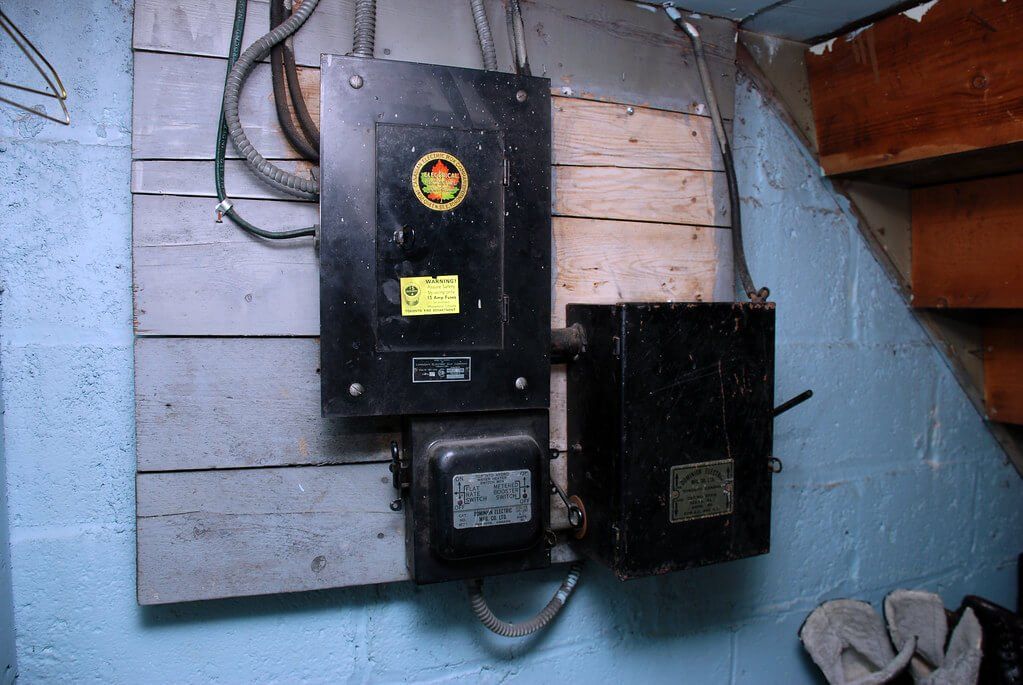How to stop a foreclosure in
Connecticut
Foreclosure is a financial term that refers to the process of repossessing a property because the owner has not been able to pay off their mortgage.
In Connecticut, foreclosure can happen when an individual or family misses more than four monthly payments in a row (120 days).
Unfortunately, many Americans have found themselves without homes due to this stressful and frustrating event.
Those who wish to stop a foreclosure from happening need to find out all of the facts about how they can do before making any rash decisions.
This post will provide details about stopping foreclosure and what should be done before making any decisions.
Escape Foreclosure With a Cash Offer Today
We will get back to you as soon as possible.
Please try again later.
How Can a Foreclosure be Stopped or Prevented?

1.Cure The Default
One of the best options that homeowners in Connecticut have is the right to cure the default, which means paying the missed mortgage payments, late fees, and other costs.
If someone is behind on their mortgage payments, they must pay the money (plus fees) to get caught up on all of their missed payments.
Generally, this option is available for at least 90 days before the foreclosure process moves forward. However, if the loan is not fixed within that time frame, it will be sent to foreclosure.
This is the simplest way to avoid foreclosure because it does not have to involve the courts.
2.Apply For Loan Modification
Many loan modifications can be applied to lower the interest rate and make monthly payments more affordable.
Generally, people will need to prove their financial hardship or low balance in their savings accounts to get approved for these programs.
Not all states allow loan modifications to cancel the foreclosure process, but Connecticut does allow this option.
3.Short Sale or Foreclosure Sale
A short sale is when someone agrees to sell their home for less than the existing balance of their mortgage. This type of sale allows those who can't afford to keep their homes to walk away from the house without having a foreclosure on their record.
So how does this stop a foreclosure?
A foreclosure on someone's record can affect their ability to get approved for future loans, so they can avoid that problem by selling their home for less than what is owed to a third party.
Those who wish to try this option will need to find a buyer willing to purchase the house at a discounted price.
It should be noted that short sales are not always approved, which may not stop foreclosure proceedings.
4.File Bankruptcy
Individuals or families that are in serious financial trouble may want to consider filing for bankruptcy.
Filing for this type of court protection can immediately stop a pending foreclosure sale, which means individuals won't have to lose their homes if they file the right papers with the courts. If you have insufficient funds to pay your bills and other financial obligations, you should strongly consider filing for bankruptcy protection.
This option generally involves hiring a lawyer who can explain the entire process and get all of the necessary papers filed.
However, this is not always the best option in the long run because bankruptcy filings can remain on an individual's credit, and that can make borrowing money difficult.
The Fastest Way To Stop Foreclosure Is To Sell Your Home For Cash. We Buy House In CT
Escape Foreclosure With a Cash Offer Today
We will get back to you as soon as possible.
Please try again later.
Can a Lawyer Help Stop Foreclosure?
Of course! An attorney can prevent a repossession in Connecticut by filing the proper papers with the court and working closely with lenders to get cases resolved.
If you're facing foreclosure, hiring legal counsel is your best option for stopping or preventing repossession. A lawyer who is experienced in this area of law may be able to help you apply for loan modifications, short sales, or other options that can help you.
The process is similar to changing the terms of most loans; you're just doing it with a lawyer instead of directly with your bank or lender. But it's better to have an experienced lawyer on your side because it can help you save much more than just the closing costs and with foreclosure prevention.
Do You Get Any Money if Your House is foreclosed?
In Connecticut, you can receive any excess money after a foreclosure sale. If the house sells for more than the mortgage, you'll receive a check for the difference.
The amount owed at a foreclosure sale is important to keep in mind because it could help you pay off your loans if it doesn't have to go toward paying down your debt.
It's important to note that the amount owed on a mortgage does not include any penalties for late payments but getting this money back can be helpful for you. Ensure you get the most money back from foreclosure by hiring an attorney to help with your case.
How Do You Stop Foreclosure Last Minute?
Homeowners have a few options when it comes to repossession. Some choose to sell their property quickly, at a much lower price than expected.
This way, they distance themselves from home as soon as possible and move on with their lives.
Others decide to modify their loan to stay in the property for an extended time if needed without any monthly payments applying.
The final choice is filing for bankruptcy so that your home won't be foreclosed, and you can pay what is owed in a way that will work for your family.
However, filing for bankruptcy does not stop repossession proceedings, so it's important to contact a lawyer before anything else.
If you hire an attorney specializing in bankruptcies, it might be possible to negotiate settlements with creditors or use other tactics like forbearance agreements, credit repair services, or more aggressive negotiations to stop repossession.
Be sure to speak with an attorney about your specific situation before making any decisions regarding foreclosure because these cases can be complicated to understand for someone without proper knowledge.
Escape Foreclosure With a Cash Offer Today
We will get back to you as soon as possible.
Please try again later.
Is it Ever too Late to Stop Foreclosure?
Foreclosure isn't a good situation for anyone, which is why it's important to do what you can to prevent repossession from happening.
Unfortunately, there are some instances when homeowners have waited too long and no longer have an option to end a repossession.
However, this doesn't mean that nothing can be saved or done at all. For example, it's still possible to negotiate settlements with creditors or file for bankruptcy, which will prevent repossession on the property.
If your home hasn't been sold at the foreclosure auction yet, it's important to speak with a lawyer immediately because you may be able to save your home.
What happens if I walk away from my mortgage?
Just walking away from your mortgage isn't a good idea if you want to keep the property.
It may take years before you can even get back on track to buy another home, which is why it's important not to walk away unless there are absolutely no other options.
Things happen but putting yourself at risk for foreclosure should always be avoided.
If you "walk away" from your home, the lender will eventually sell your property and get the money they're owed.
This usually includes selling your home for whatever it will sell for at auction, which is usually much less than what you still owe on the property.
Does Bank Keep Equity in Foreclosure?
No! Banks do not keep equity in the foreclosure. If a house sells at auction for more than what you still owe on the property, then you'll receive a check for the difference between what you still owe and what the property sold for.
However, this amount is typically much less than equity would be after many years of making payments on your mortgage. It's possible to negotiate with the Bank to keep your home and hire a lawyer to help with this process.
Foreclosure is a tough situation to be in. You can contact your Mortgage Company or lender and try to negotiate with them for more time, but if they're unwilling to work with you on this, then it's time to call an attorney.
Your lawyer will help you explore all the available options so that together, you can stop foreclosure before it occurs!
It may not always feel like any good options are left open when foreclosure seems inevitable, but don't give up hope just yet.
There could still be something out there waiting for you - even at the very last minute!
Some Popular Cities In Connecticut We Buy Houses in:
Stamford,
Waterbury,
Norwalk,
Bridgeport,
Hartford,
Danbury ,
New Haven,
Fairfield,
Stratford,
Norwich,
New London,
Groton,
Manchester,
New Britain,
Meriden and Many More
Our Recent Post
Get a Cash Offer for Your Home Today
Get Your No-Obligation All Cash Offer
Free Offer Form
We will get back to you as soon as possible.
Please try again later.
Sell My House 7
Main Office: Norwalk CT
Phone: (203) 793-4451
Email: info@sellmyhouse7.com
All Rights Reserved | Sell My House 7




